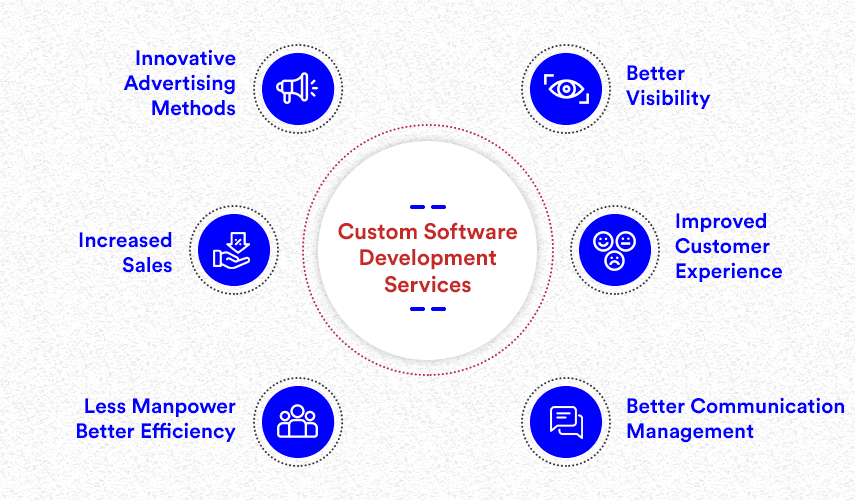

Software companies have come a long way in recent decades, evolving from humble beginnings to becoming some of the most powerful and influential companies in the world.
From the emergence of the internet in the 1990s to the growth of cloud computing and software-as-a-service, the software industry has undergone dramatic changes and developments.
In this article, we will explore the history of software companies and examine how they have evolved over the years.
Beginning in the late 1960s, early software companies began to emerge as the demand for computer programming grew. These companies were founded by skilled and talented programmers with a passion for coding.
They developed software for a variety of platforms, including mainframes, minicomputers, and personal computers. During this period, software was expensive and very difficult to use, so early software companies focused on creating user-friendly software that was easier to use.
They also focused on creating innovative programs and applications that could provide solutions to complex problems. As a result, these companies created some of the most successful software products of the time. Despite their limited resources, they managed to build a strong foundation for future software companies.
The 1980s saw a major shift in the software industry, as the growing demand for user-friendly programs and applications prompted a surge in innovation. This shift saw the rise of the personal computer, which was quickly adopted by consumers. The popularity of personal computers created a need for software that could be tailored to meet individual user needs.
This led to the emergence of software companies that specialized in creating software for specific applications. Companies such as Microsoft, Lotus, and WordPerfect began to dominate the industry, providing users with intuitive and easy-to-use programs.
In addition, the 1980s saw the emergence of the first computer network, which allowed users to share information and resources. This further solidified the importance of software in the modern business world. By the end of the decade, software had become an integral part of everyday life.

How did the emergence of the Internet in the 1990s further shape the software industry? The widespread availability of the Internet fundamentally changed the way people interacted with software.
Suddenly, software companies could reach and connect with people all over the world, making it easier to collaborate, expand the market, and share resources. This marked the beginning of the era of digital connectivity, where software companies could leverage the power of the Internet to reach a much larger customer base.
In addition, the Internet enabled software companies to dramatically increase the speed of software development, thereby reducing costs and quickening the pace of innovation. As a result, the software industry was revolutionized and the landscape of software companies was changed forever.
The open source movement has revolutionized the software industry by providing access to software code and encouraging collaboration among developers. It has enabled the development of software to become democratized, allowing for public participation, transparency, and cost-efficiency.
With open source software, developers can see the code, modify it, and distribute improvements to the public. This has allowed for faster product development and improvements, as well as creating a larger community of users. Additionally, open source software has allowed for the development of new business models, such as pay-as-you-go subscriptions, and freemium models.
This has allowed businesses to offer their software for free, while still generating revenue from other services. The open source movement has completely changed the way software is developed, and has had a major impact on the software industry as a whole.

Subsequently, Cloud Computing has become a major factor in the evolution of software companies throughout history. By allowing businesses to access their software and data from anywhere with an internet connection, cloud computing has enabled companies to become more agile and efficient.
Furthermore, cloud computing has allowed companies to scale their operations quickly and to reduce their overhead costs. Additionally, it has increased the flexibility of software development, making it easier for companies to launch new products and services rapidly.
Finally, cloud computing has enabled companies to access powerful computing resources at a fraction of the cost of traditional methods. As a result of this, cloud computing has been a key factor in the evolution of the software industry.
Furthermore, the emergence of Software-as-a-Service (SaaS) has revolutionized the way businesses use software. It has enabled companies to focus on core business processes without having to worry about software maintenance, updates and other IT-related issues.
It also allows companies to access software applications through the cloud, eliminating the need for expensive hardware and software purchases. Additionally, SaaS can help reduce operational costs by allowing users to pay for only the services they require.
Finally, SaaS has enabled businesses to quickly and easily access the latest software applications, without the need for costly installation and training. Thus, SaaS has become a key component of the modern software industry, enabling businesses to benefit from the latest technology without having to invest heavily in IT infrastructure.

One of the best ways for software companies to collaborate is through open source projects. Open source projects allow multiple organizations to contribute code and resources to a single project, creating a vast pool of knowledge and innovation. This type of collaboration has enabled software companies to create better, more efficient products, and to accelerate the industry's progress as a whole. Additionally, it allows for a wider variety of perspectives, which can lead to more comprehensive solutions. Open source collaboration also makes it easier for developers to find and use tools to help them create better products, which in turn helps speed up the development process.
Today, successful software companies are characterized by their ability to continually provide innovative solutions to customers. These companies can be found across various industries, from media and entertainment to finance and healthcare. Some of the most successful software companies today include Google, Microsoft, Amazon, Apple, and Salesforce. These companies utilize cutting-edge technologies and develop unique products in order to remain competitive in the marketplace. Furthermore, they are able to navigate the ever-changing world of technology to provide customers with the best possible services and products.
Cloud computing is a form of technology that uses the internet to deliver computing services such as data storage, computing power, analytics and software. It enables businesses to access these services without having to purchase, install and maintain hardware or software. This can greatly increase operational efficiency by reducing the amount of time and money spent on IT infrastructure. Additionally, cloud computing can help streamline business operations by providing access to data and applications from any location, allowing for faster decision making. Furthermore, cloud computing can help improve security by providing access to data and applications from secure data centers.